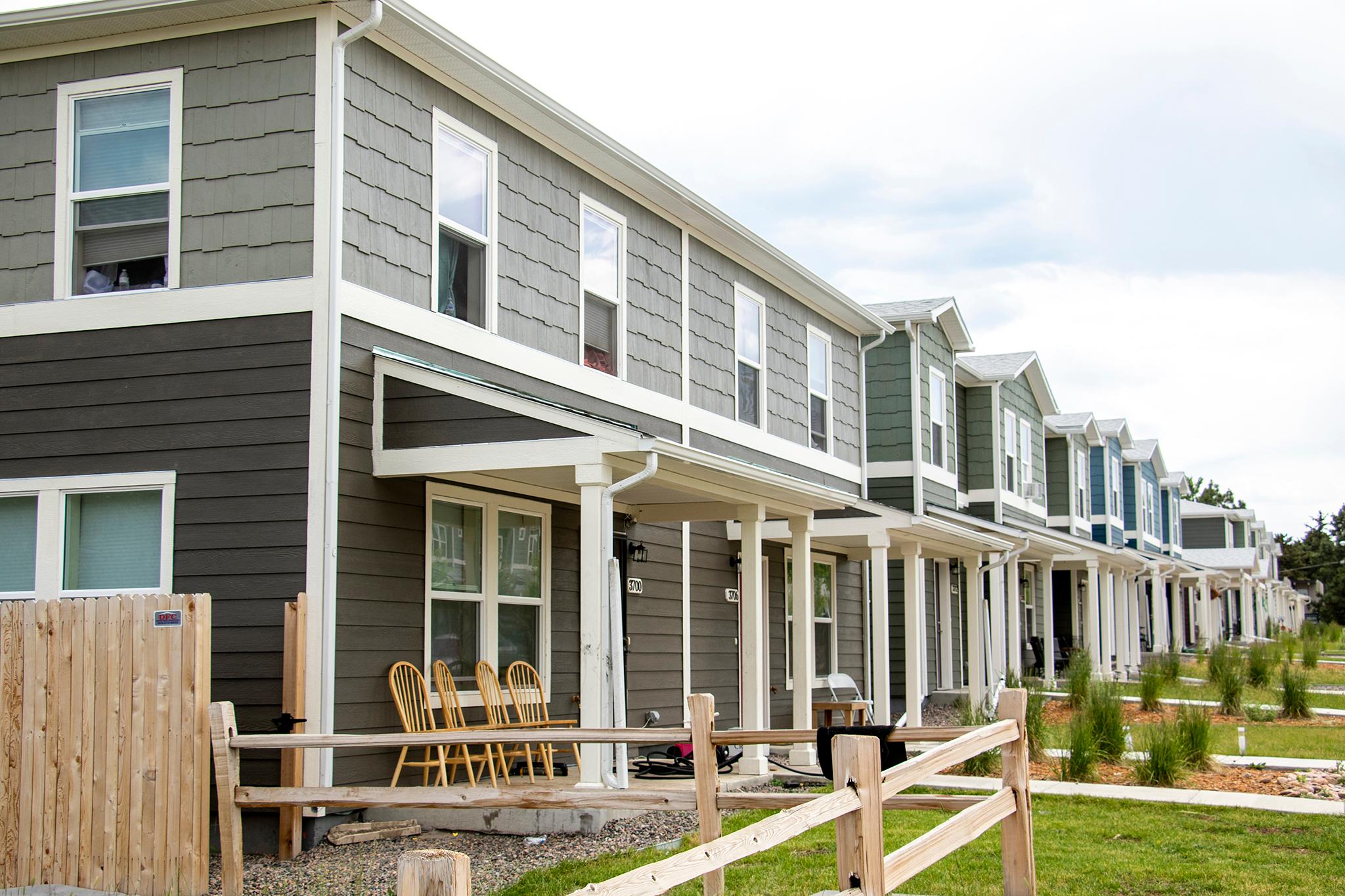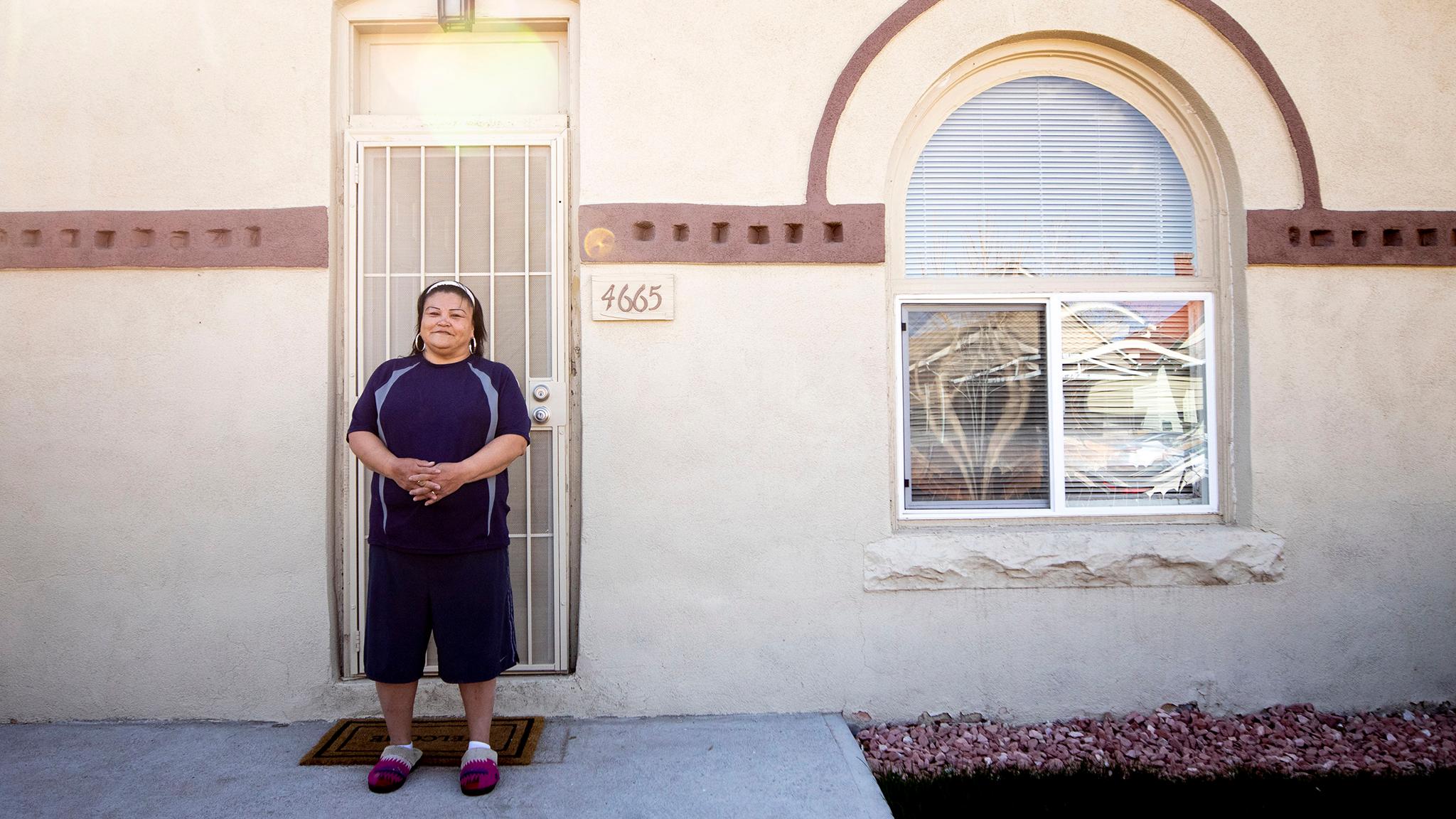One helps low-income families build their own homes and keeps the housing affordable long term. The other ensures affordability by keeping the land under a group of homes in communal hands, never to be sold.
On Tuesday, Habitat for Humanity of Metro Denver and the Colorado Community Land Trust announced they have merged.
Jane Harrington, who has led the land trust since it started in 2002 in Lowry, said that when Habitat raised the idea earlier this year, she saw it as something that would "help my baby land in good hands."
"We're a small organization, and we were struggling to add to our inventory," Harrington said. Habitat is "steeped in affordable home ownership. And so are we."
Hearing that Harrington was planning to retire this year prompted Habitat CEO and Executive Director Heather Lafferty to reach out with the merger idea. She said she believed Habitat for Humanity of Metro Denver was the first affiliate within the global Habitat network to own and operate a land trust.
"We really had shared values and similar missions," Lafferty said. "We think we're stronger together."
Britta Fisher, who heads the city's housing department, called Habitat and the Colorado Community Land Trust partners in her work.
"It's great to see how they are building on their strengths to work together," Fisher said.
Both Habitat and Colorado Community Land Trust have found it increasingly difficult to secure land for their projects at prices within their reach. Lafferty said that between 2012 and 2018, land prices have almost doubled.
"Instead of competing against each other, we might as well work together," Lafferty said, adding that the goal was to pool resources to build more affordable housing.
Lafferty said that going forward, most larger Habitat developments will be community land trusts. Homeowners invest sweat equity in Habitat housing, and volunteer construction teams also help keep costs down.

Habitat will continue to acquire and refurbish condos and town homes that it will sell on the condition that they remain affordable under 90-year covenants, Lafferty said.
The trust's only other employee will join Habitat, and an independent real estate agent who has been the trust's preferred agent will work with Habitat. The trust's eight-member board will dissolve, with two members joining Habitat's 24-member board. In addition, a committee composed of people with expertise in trusts, including at least one trust homeowner, will be formed to advise the Habitat board.
Harrington will act as a consultant before retiring later this year. One of the projects she will help shepherd into the Habitat fold is the GES Community Land Trust that the Colorado Community Land Trust incubated. Brothers Redevelopment, a company that builds and manages affordable housing and provides other services to low-income homeowners and renters, is the GES Community Land Trust's developer partner.
Years ago when people in Globeville and Elyria-Swansea were looking into land trusts as a way to ensure working class families aren't displaced from north Denver, they approached Habitat as a possible partner, said Nola Miguel, director of the Globeville, Elyria-Swansea Coalition. At the time, the trust idea seemed too far from what Habitat was doing. Miguel said she was glad to see Habitat come around.
"I think it is very, very smart on Habitat's part to have another tool in the tool box," she said. "During these times right now, where there's a lot of housing instability, this (land trust model ) is a big tool."
Homeowners in land trusts own only the structure and pay a ground lease to the trust, sparing them the cost of land. The Globeville, Elyria-Swansea Coalition and the Colorado Community Land Trust have raised grants to keep the costs to homeowners even lower. Homeowners can sell at a profit, but still have to keep the price below market rates. Trusts are managed by homeowners, community members and property experts who can intervene, including with financial help, to support homeowners who might run into trouble paying their mortgages.












